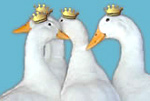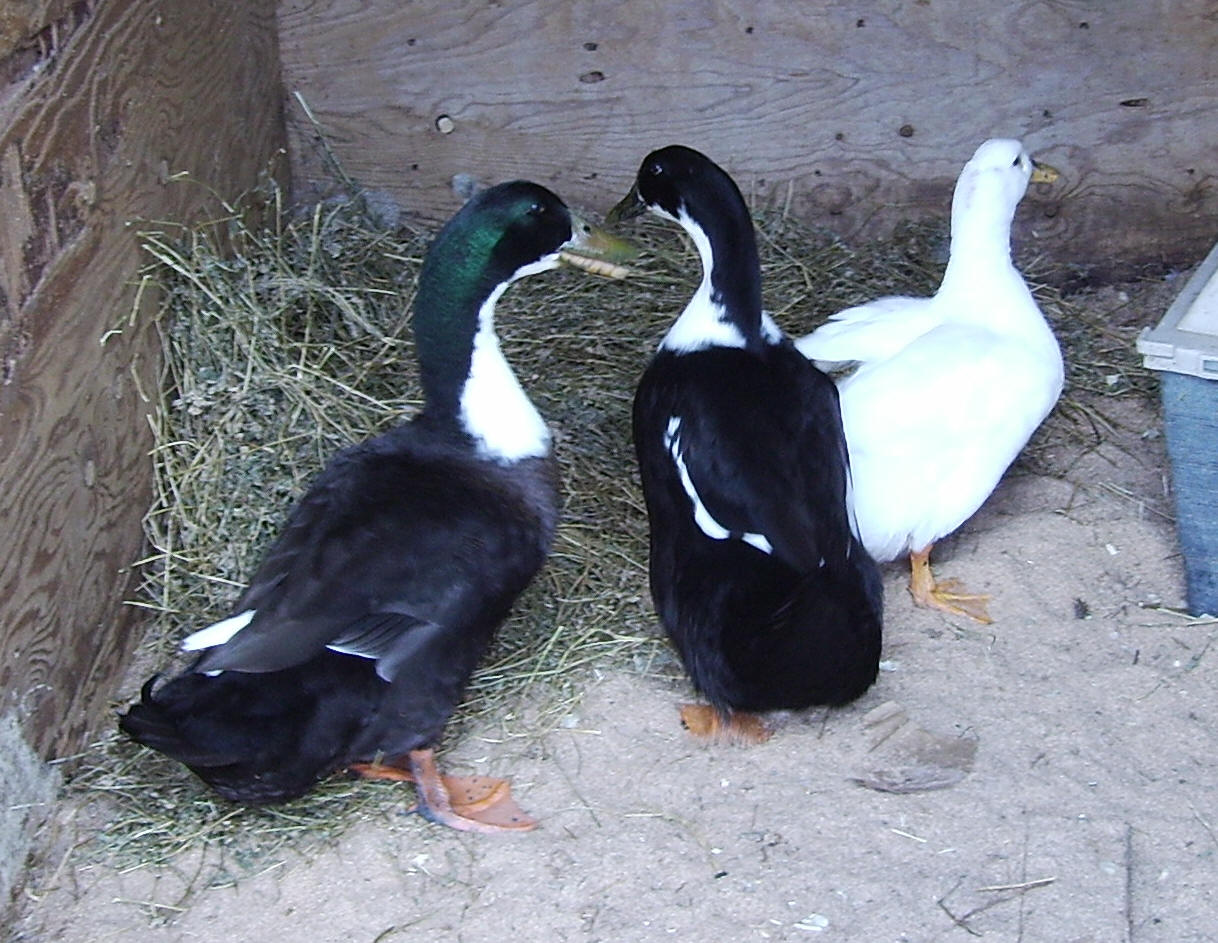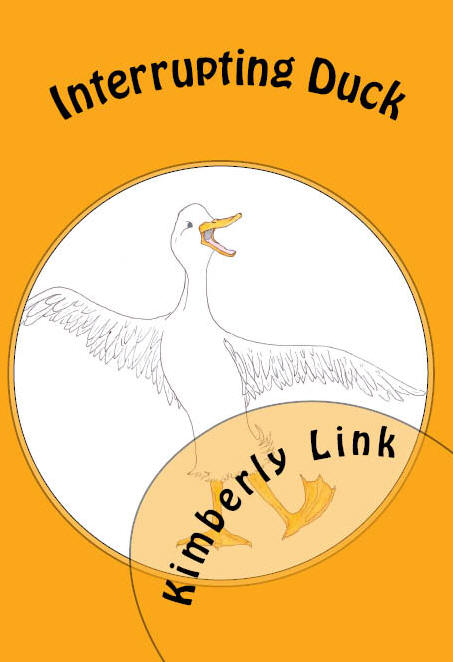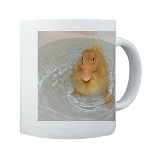Shelter Me 2010 Calendar by Karen Stevenson
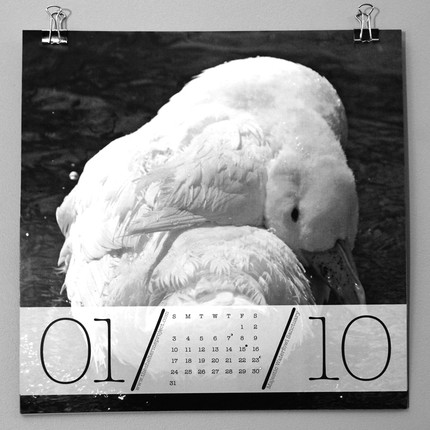
Featuring Majestic's rescued duck Jasmine!
Message from Karen:
Announcing the 2010 Shelter Me Project Fundraising Calendar!The Shelter Me Project is a photography collection portraying animals who have been taken in by shelters or rescue organizations. My heart has always gone out to animals in need of their forever homes and so I decided to reach out to them through my camera lens. These images are very personal portraits with which I hope to raise both funds and awareness. The purchase of each calendar will enable a donation to be made to each shelter represented herein. Through this project I hope to share the beauty, playfulness and dignity of all of these wonderful animals. I hope you enjoy these images all year long.
Each calendar will raise a total of $14 for the shelters ($2 for each of the 7 shelters represented in the calendar). As for the specs, the calendars are 11.5" square, with each month featuring a different animal from one of the seven shelters: Forgotten Felines, Majestic Waterfowl Sanctuary, Ray of Light Farm, Greener Pastures Rescue, Pet Animal Welfare Society (PAWS), Old Lyme Animal Control, and Yesterday's Kittens.
I was able to price the calendar at $25, so more than half of the cost of the calendar goes directly to the shelters. Just think--if only 100 calendars are sold, each shelter will get $200!!! That's my goal; it's a big one, and I will need everyone's support. So, if you or anyone you know would like to make a difference by purchasing one of these calendars, send them directly to my Etsy Shop to make the purchase. Checks would work, too, just Email Me for details.
A big thank you to all of you for your support!
Karen
Stevenson
The Shelter Me Project
info@thesheltermeproject.com
Please Note: This is a modern-style calendar printed on individual pages and meant to be clipped and hung on the wall (clips and nails provided).
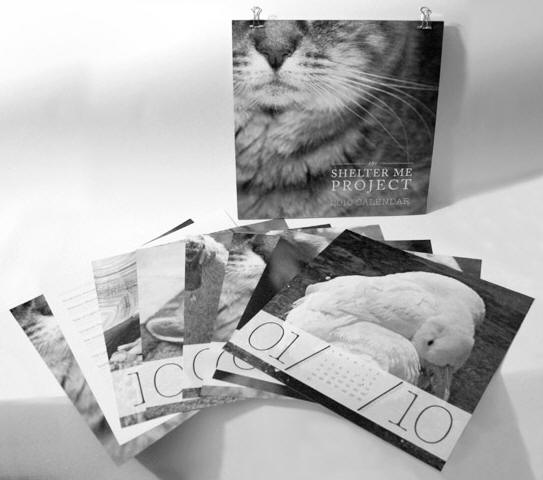
Rapid Weight Gain
Although many ducks and geese will show an increased appetite for 3-4 weeks when temperatures begin to drop, their appetite should decrease back to normal again once they have finished preparing for winter.
When your adult duck or goose experiences rapid weight gain un-seasonally it is important to bring them to your vet for an examination. In some cases, you will see your duck or goose eating more than usual; in others, you won't see any changes in your bird's appetite.
Rapid abdominal weight, especially in female ducks can be a sign of reproductive tract ailments, tumors or cancer. Although treatment options may be limited, comforting medications can be prescribed to keep them happily quacking along. Remember, ducks diagnosed with these types of ailments can still live up to a year or more.
If an x-ray reveals fluids that are concealing your duck or goose's internal organs, your vet may decide to aspirate enough of the fluid for a lab test to determine if an infection is present or to see if cancer cells can be identified.
Vets will sometimes advise a follow-up ultrasound to further delve into the issue. This step is not usually advisable until after sample fluids (if present) have been aspirated and lab test results have come back. Younger birds, who are not commonly suspected to have cancer, are good candidates for this follow-up procedure, especially when you and your vet believe that there are viable treatment options for whatever they suspect might be plaguing your duck or goose.
If your vet suspects something non-treatable (such as cancer), you will need to consider whether additional tests are for your sake or your bird's. Consider this: will further tests stress your bird and offer little in the form of treatment options, or do you and your vet suspect that you may uncover something treatable.
Remember to trust your instincts. If you are not convinced by your vet's advice or treatment plan, get a second opinion.
Hypothermia
It is not uncommon for ducks and geese who are molting wing feathers to get stuck in their normal ponds or pools if special accommodations are not made; such as, stepping stones, ramps or the like.
Kiddie pools are frequently a source of trouble to a molting duck, and ducks trapped in a pool of water for a long period of time, especially in cold weather, can get hypothermia.
If you discover your duck or goose trapped in their water source, they may already be in shock and appear quite still. Remove them immediately and bring them inside your warm house. They may begin shivering and breathing heavily, so wrap them in warm, dry towels, changing them out frequently until they no longer grow damp. Lay down on your back and set your duck on your chest. Cover you and your duck with plenty of warm blankets enabling them to absorb your heat. Recovery from hypothermia can take 30-60 minutes. If your bird appears overly stressed, shivering becomes fierce, or they have extreme difficulty breathing, immediately rush them to a vet--keeping them wrapped, dry and warm and held close to your body.
Provided you can warm your duck or goose up in your home and on your own, keep them safely inside your warm house for an additional two to three hours. When their behavior reverts back to complete normalcy and they are active, perky and completely dry, you can bring them back out to their pen. Check on them every twenty to thirty minutes for the next 2-3 hours. If they show any signs of lethargy or any behaviors that seem abnormal or worrisome to you, do not hesitate to bring them back inside and seek out immediate veterinary treatment.
The Ultimate Pet Duck Guidebook
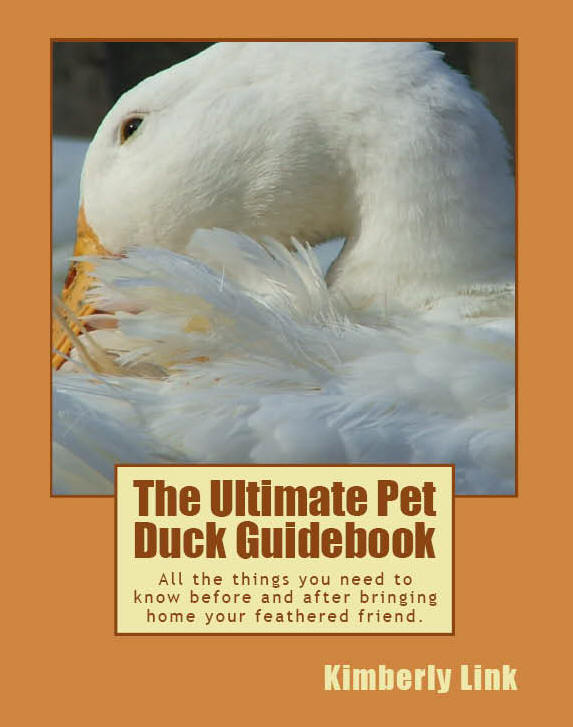 A
great holiday gift for the duck-lover in your
family!
A
great holiday gift for the duck-lover in your
family!
With over 150 full color photos, inspiring anecdotes and the answers to every question we have ever been asked about how to properly care and provide for ducks.
This beautiful guide is simply a MUST for any family that includes a pet duck!
Click here to order.
A portion of all proceeds are being donated to Majestic!
Back cover copy:
This is the reference book that duck-lovers have been waiting for! Everything you’ve ever wanted to know about your ducks all in one comprehensive, pet-friendly guidebook.
Written by the
Founder & President of Majestic Waterfowl Sanctuary, a
rescuer who understands the connection between pet ducks and
their guardians, this guide treats your feathered friend as
a loving and worthy companion.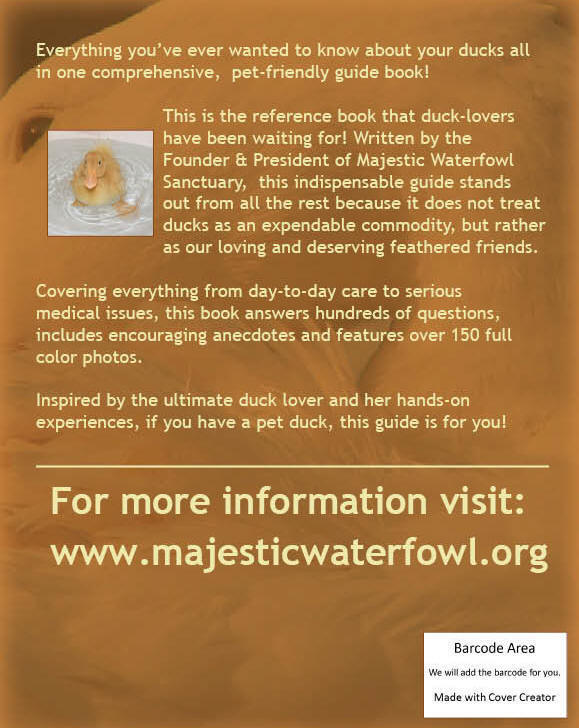
Based on first-hand experiences and containing the answers to hundreds of questions, this guide covers everything from day-to-day care to serious medical issues. You’ll learn essential tips on food, housing, flock management, enrichment and more!
Complete with inspiring anecdotes and over 150 full color photos, if you have a pet duck in your life or are considering letting one join your family, this guide is an absolute must.


